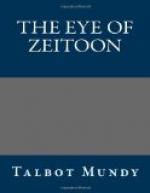Chapter Fifteen “Scenery to burst the heart!”
THE REBEL’S HYMN
The seeds that swell within enwrapping mould,
Gray buds that color faintly in the northing sun,
Deep roots that lengthen after winter’s rest,
The flutter of year’s youth in April’s
breast
As young leaves in the warming hour unfold—
These and my heart are one!
Go dam the river-course with carted earth;
Or bind with iron bands that riven stone
That century on century has slept
Until into its heart a tendril crept,
And in the quiet majesty of birth
New nature broke into her own!
Or bid the sun stand still! Or fashion wings
To herd the heaven’s stars and make them be
Subservient to will and rule and whim!
Or rein the winds, and still the ocean’s hymn!
More surely ye shall manage all these things
Than chain the Life in me!
Great mountains shedding the reluctant snow,
Vision of the finish of the thing begun,
Spirit of the beauty of the torrent’s song,
Unconquerable peal of carillon,
And secrets that in conquest overflow—
These and my heart are one!
Yet another night we were destined to spend on the Zeitoon road, for we had not the heart to leave behind us the stragglers who balked fainting in the gut of the pass. Some were long past the stage where anything less than threats could make impression on them, and only able to go forward in a dull dream at the best. But there were numbers of both men and women unexpectedly capable of extremes of heroism, who took the burden of misery upon themselves and exhibited high spirits based on no evident excuse. Nothing could overwhelm those, nothing discourage them.
“To Zeitoon!” somebody shouted, as if that were the very war-cry of the saints of God. Then in a splendid bass voice he began to sing a hymn, and some women joined him. So Fred Oakes fell to his old accustomed task, and played them marching accompaniments on his concertina until his fingers ached and even he, the enthusiast, loathed the thing’s bray. In one way and another a little of the pall of misery was lifted.
Kagig sent us down bread and yoghourt at nightfall, so that those who had lived thus far did not die of hunger. Women brought the food on their heads in earthen crocks—splendid, good-looking women with fearless eyes, who bore the heavy loads as easily as their mountain men-folk carried rifles. They did not stay to gossip, for we had no news but the stale old story of murder and plunder; and their news was short and to the point.
“Come along to Zeitoon!” was the burden of it, carried with a singsong laugh. “Zeitoon is ready for anything!”
Before we had finished eating, each two of them gathered up a poor wretch from our helpless crowd and strode away into the mountains with a heavier load than that they brought.




